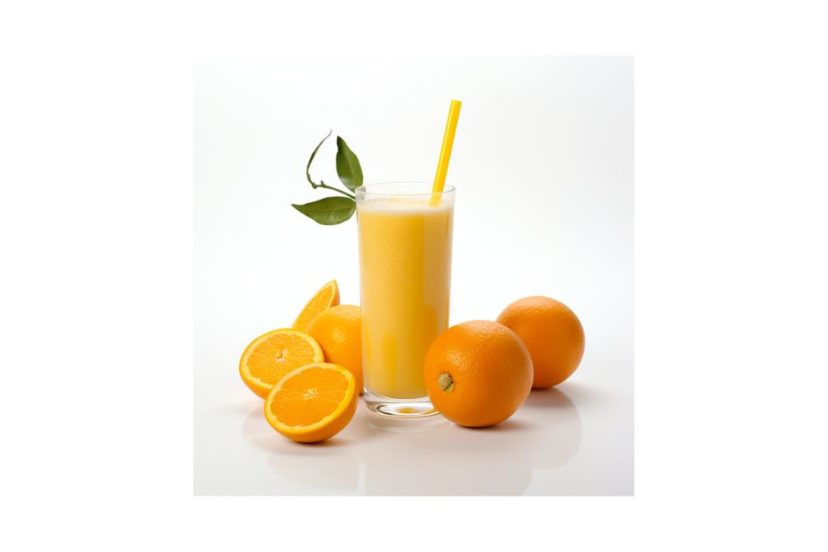Is Orange Juice Gluten-Free?
As an enthusiast in the world of juicing for health, one common question that often arises is whether orange juice is gluten-free.
With the increasing awareness of gluten sensitivities and the popularity of juicing, it’s essential to understand the gluten content in various juices and its impact on those following a gluten-free diet. In this post, we will explore the topic in detail, addressing the concerns and providing valuable insights into orange juice and its gluten-free status.
What is Gluten?
Before delving into whether orange juice is gluten-free, let’s start by understanding what gluten actually is. Gluten is a protein found in grains such as wheat, barley, and rye. It provides elasticity and structure to dough, giving bread and other baked goods their characteristic texture. However, for individuals with gluten sensitivity or celiac disease, consuming gluten can lead to adverse health effects.
Understanding Gluten Sensitivity
Gluten sensitivity is a condition where the body reacts negatively to the presence of gluten. Symptoms may include abdominal pain, bloating, diarrhea, and fatigue. It is important for individuals with gluten sensitivity to avoid gluten-containing foods and beverages to prevent these symptoms from occurring.
Is Orange Juice Gluten-Free?
Fortunately, orange juice is naturally gluten-free. Oranges are a citrus fruit, and the juice extracted from them does not contain gluten. Therefore, individuals with gluten sensitivity or celiac disease can enjoy a refreshing glass of orange juice without worrying about gluten-related issues.
The Benefits of Orange Juice
Aside from its gluten-free status, orange juice offers numerous health benefits. It is a rich source of vitamin C, which plays a vital role in supporting the immune system and promoting overall well-being. Orange juice also contains essential minerals like potassium, magnesium, and folate. These nutrients contribute to heart health, bone strength, and cell function.
Furthermore, orange juice is packed with antioxidants, including flavonoids and carotenoids, which help protect the body against harmful free radicals. Regular consumption of orange juice has been associated with reduced inflammation, improved digestion, and even enhanced skin health.
Incorporating Orange Juice into a Gluten-Free Diet
For individuals following a gluten-free diet, orange juice can be an excellent addition to their daily routine. It not only offers a refreshing taste but also provides valuable nutrients that may be lacking in other restricted foods. Orange juice can be enjoyed on its own or used as a base for nutritious smoothies. Adding a splash of orange juice to gluten-free pancakes or salad dressings can also enhance the flavor profile while keeping the meal gluten-free.
Juicing for Health
Juicing has gained significant popularity in recent years as a way to boost health and increase nutrient intake. By extracting the juice from fruits and vegetables, juicing allows for concentrated amounts of vitamins, minerals, and antioxidants to be consumed in an easily digestible form. Orange juice, with its vibrant color and invigorating taste, is a popular choice for juicing enthusiasts.
When juicing for health, it’s important to use fresh and high-quality produce. Opt for organic oranges to minimize exposure to pesticides and chemicals. Additionally, consider including a variety of other fruits and vegetables in your juicing routine to reap the benefits of a diverse nutrient profile.
Other Gluten-Free Juices
While orange juice is a safe option for those on a gluten-free diet, there are other gluten-free juices to explore as well. Some examples include:
- Apple Juice
- Grapefruit Juice
- Pineapple Juice
- Cranberry Juice
- Watermelon Juice
These juices offer their unique flavors and health benefits, making them versatile choices for individuals seeking gluten-free options.
Tips for Choosing Gluten-Free Juices
When purchasing juices, it’s crucial to read labels carefully to ensure they are gluten-free. Here are a few tips to help you choose gluten-free juices:
- Look for “gluten-free” labels on the packaging.
- Check for any allergen warnings, including wheat, barley, or rye.
- Verify if the juice is processed in a gluten-free facility to minimize the risk of cross-contamination.
- Opt for juices made from single ingredients or those explicitly labeled as gluten-free.
By following these guidelines, you can confidently select gluten-free juices that align with your dietary needs.
Conclusion
In conclusion, orange juice is indeed gluten-free, making it a safe and nutritious choice for individuals with gluten sensitivity or celiac disease. Its vibrant taste, along with an array of health benefits, makes orange juice an excellent addition to a gluten-free diet. Remember to read labels carefully when selecting other juices and opt for gluten-free options to ensure a well-rounded and enjoyable juicing experience.
FAQs (Frequently Asked Questions)
- Can I drink orange juice if I have celiac disease?
- Yes, and it can be consumed by individuals with celiac disease.
- Can orange juice cause gluten cross-contamination?
- Pure orange juice does not contain gluten. However, it’s essential to check for potential cross-contamination in the manufacturing process if purchasing packaged or processed orange juice.
- Is freshly squeezed orange juice gluten-free?
- Freshly squeezed orange juice is gluten-free as long as it hasn’t come into contact with gluten-containing ingredients during preparation.
- Are there any orange juice brands that are specifically labeled gluten-free?
- Some brands may explicitly label their orange juice as gluten-free. Check the product labels or contact the manufacturer to ensure gluten-free status.
- Can I substitute orange juice with other gluten-free juices in recipes?
- Absolutely! There are various gluten-free juices available, such as apple, grapefruit, pineapple, cranberry, and watermelon juice, which can be used as alternatives in recipes.
Remember to consult with a healthcare professional or a registered dietitian for personalized advice regarding your specific dietary needs.
Resources that offer scientific insights and commentaries related to the content:
- Gluten-related Disorders: This article from the National Center for Biotechnology Information (NCBI) discusses the spectrum of gluten-related disorders, including celiac disease and non-celiac gluten sensitivity. It offers a comprehensive overview of these conditions, their causes, and how they affect people’s health. Link here




